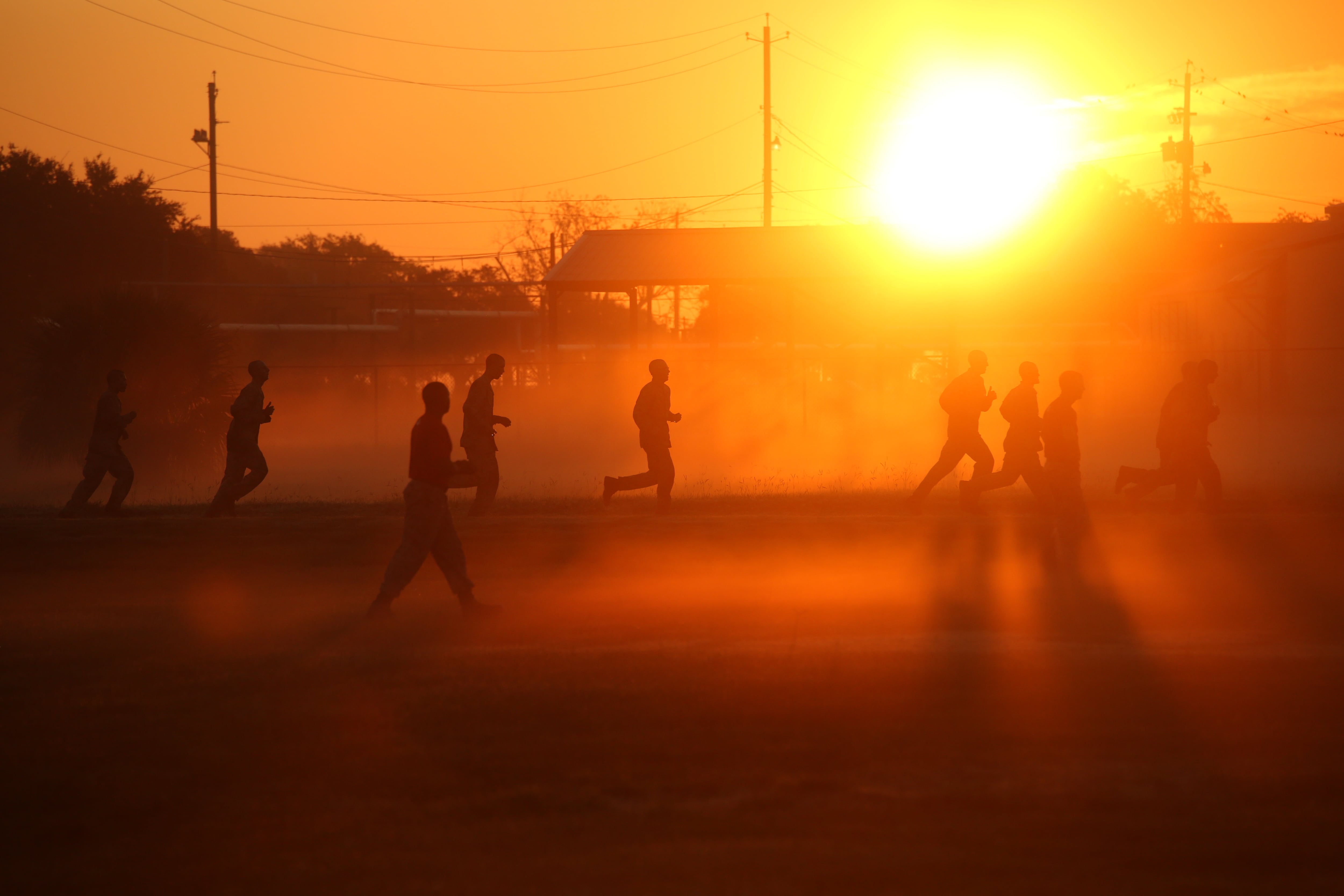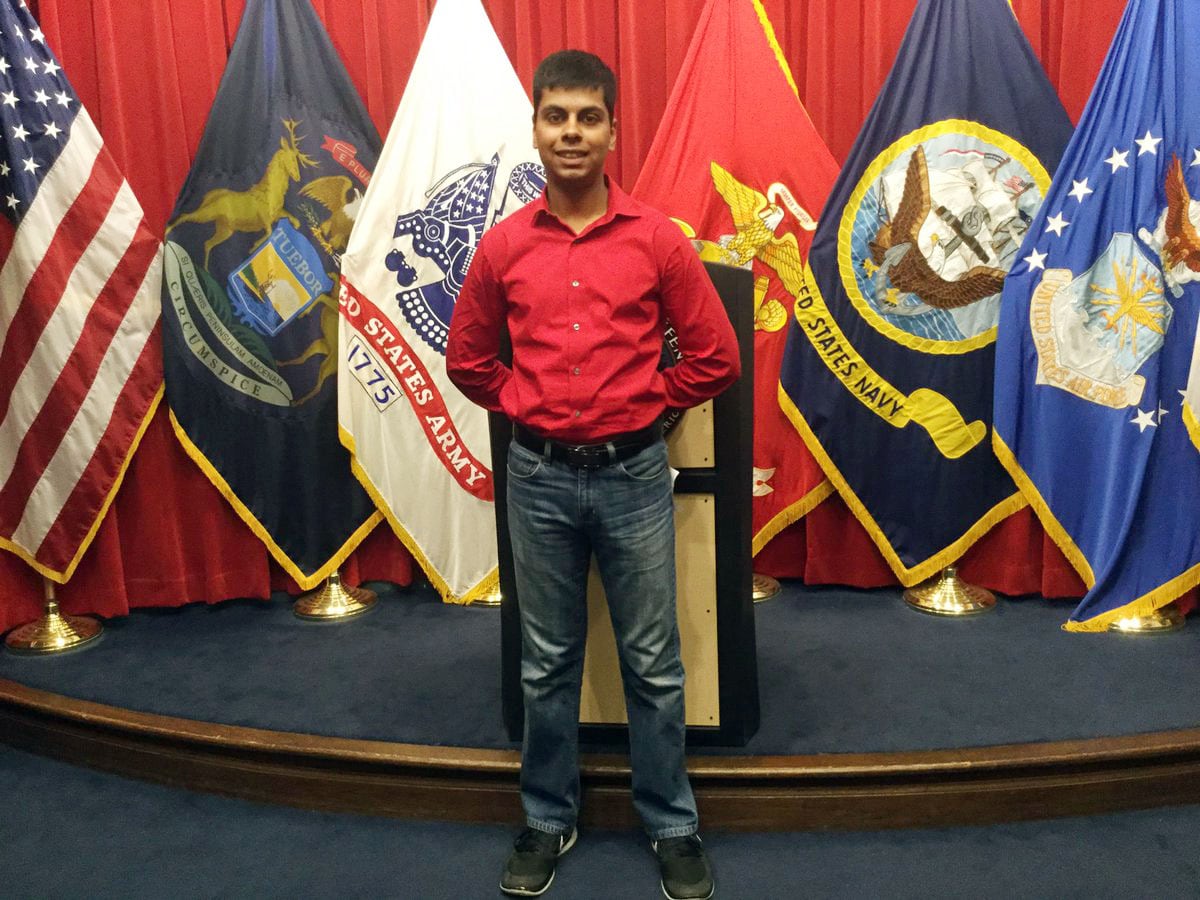A recruit at the Marine Corps' East Coast training depot who killed himself in March should not have returned to training after threatening to commit suicide five days before his death, a command investigation found.
"Evidence was found of multiple errors and omissions, to include failures to supervise and take required actions by a number of officers and staff non-commissioned officers in the recruit's chain of command, some of which rose to the level of dereliction of duty," the investigation states.
When asked how he would kill himself, Siddiqui said "he would jump out the squad bay window, and if necessary, cut the screen prior to jumping," according to the investigation. He also said he had previous thoughts of suicide but had not told his recruiter.
Had the facility's mental health unit known that Siddiqui had a specific plan for how he intended to kill himself, Siddiqui would have been separated from the Marine Corps with a diagnosis of suicidal ideation, the investigation found. But Siddiqui's leaders at the training depot did not report this information.

A series of changes will be made to Marine boot camp after a drill instructor under investigation for hazing was allowed to lead another platoon of recruits.
Photo Credit: Cpl. Caitlin Brink/Marine Corps
The investigation uncovered several problems and communication lapses that led to Siddiqui being declared fit to train "when there were clear indications he should have been disqualified."
"These issues also resulted in his return to his training platoon without the benefit of a mental health trial training program designed to assist recruits with difficulty adapting to the recruit training environment," according to the investigation, which recommended a separate inquiry by the Navy Bureau of Medicine and Surgery into the mental healthcare that Siddiqui received. It's not immediately clear whether that recommendation was carried out.
Siddiqui later took back his treat of suicide and said he wanted to continue to train. He was returned to his platoon on March 14. Those in Siddiqui's chain of command believed that recruits who threatened to kill themselves were trying to avoid training, according to the investigation.
Troubling patterns
Siddiqui's allegation of being physically abused was never properly reported, the investigation found. There was a perception in Siddiqui's company that drill instructors were would severely punished over relatively unimportant infractions.
"Several company-grade officers routinely refrained from reporting what they perceived to be 'minor misconduct' to their battalion commander based on these perceptions," the investigation found.
Up to 20 Marines could face punishment or administrative actions after three Marine Corps investigations found rampant abuse of recruits and less experienced drill instructors at Parris Island. Col. Paul Cucinotta, commander of the Recruit Training Regiment; and Sgt. Maj. Nicholas Deabreu, the training regiment's senior enlisted leader, were fired June 6 as a result of investigation into Siddiqui's death.
On March 18, Siddiqui was unable to speak due to a sore throat. He handed his drill instructors a note: "This recruit has to go to medical. This recruit's throat has been swollen for 3 days and is getting worse. When this recruit drinks and eats, it hurts and has trouble. This recruit also coughed blood a few times last night. And this recruit completely lost his voice and can barely whisper. This recruit's whole neck is in a lot of pain."
After chow, a drill instructor was angry that Siddiqui could not report or give the greeting of the day that he ordered Siddiqui to run to one end of the squad bay and back until Siddiqui fell to the floor. The drill instructor then slapped Siddiqui between one and three times, the investigation found. The slap or slaps were loud enough to be heard across the squad bay.
Evidence suggests that the drill instructor was acting out of frustration instead of trying to revive Siddiqui.
After being hit, Siddiqui got up and ran to a stairwell outside. His foot got caught on the railing as he vaulted over, causing him to fall uncontrollably.
Siddiqui's death was deemed a suicide, but it is not clear whether he was trying to kill himself when he jumped over the railing or whether he was trying to get away from the drill instructor, the investigation found.
Through their attorney, Siddiqui's family has dismissed the finding that he committed suicide, saying there is not enough evidence to justify that conclusion.
Rep. Debbie Dingell has been working with Siddiqui family to find out more about the investigation into Siddiqui's death.
"Unfortunately, almost none of us are going to know exactly what happened," she told Marine Corps Times. "What for me is the hardest thing is no matter what I do, no matter how hard I work I can't bring him back to his family."
Dingell, a Democrat from the recruit's home district in Michigan, said she wants to make sure what happened to Siddiqui never happens again, and she believes the Marine Corps is committed to making the necessary changes to recruit training.
"We're going to stay very focused on this and ensure that those who are responsible are held accountable," Dingell said. "The Marines have done the investigation but this is far from done."




